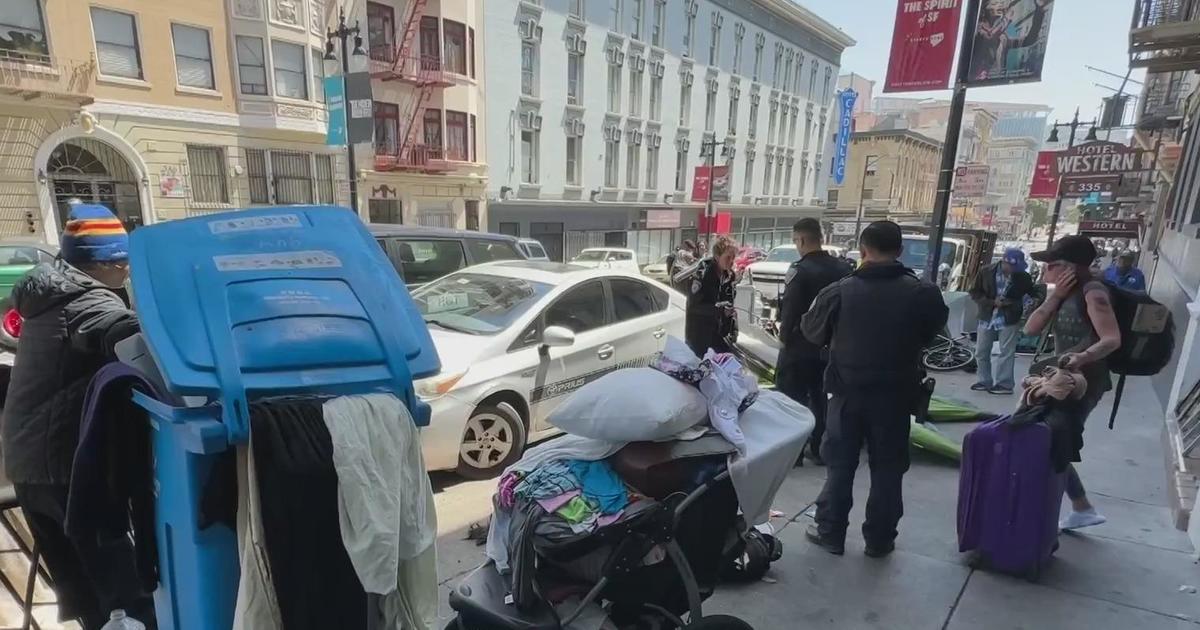New Year To Begin With Wintry Blast
SAN FRANCISCO (CBS SF) – For only the third time in more than 40 years, a combination of frigid arctic air and a plume of moisture from the Pacific could bring a dusting of snow to the East Bay hills and dangerous early morning black ice driving conditions next week, according to the National Weather Service.
NWS forecasters said for the first time since Dec. 20, 1998 a combination of a polar air intrusion, an off-shore moisture flow and a blocking ridge of high pressure over the eastern Gulf of Alaska will come together over Northern California.
The only other time this combination was together in the last 40 years was on Feb. 5, 1976.
Snow levels were expected to plunge significantly as a result of this cold air, initially into the 1500-2500 foot range on Monday then gradually descending to 750-1500 feet late Monday night into Tuesday, depending on location.
While large amounts of snow were not expected with the weather system, there may be light flurries in Bay Area neighborhoods that seldom see snow. Forecasters also say the ground is simply too warm to allow snow to accumulate.
The National Weather Service said the main impacts from a light snow at low elevation will be felt on frequented mountain passes, such as those who travel between Santa Cruz and San Jose on highway 17, Skyline Blvd, Laureles Grade between Carmel Valley and Monterey, over Kirker Pass between Concord and Pittsburgh, and those living in the highest portions of the Oakland Hills.
While snow accumulations may be rare, early morning commuters in those areas are warned to be on the lookout for dangerous black ice driving conditions.
The NWS forecasters, however, said temperatures should be relatively comfortable for prime 2017 New Year's Eve reveling hours, especially in San Francisco and Oakland where temperatures should be in the mid-40s as we welcome in the new year.
Some parts of Sonoma and Marin counties in the North Bay could see temperatures drop into the 20s on Monday and Tuesday.
In the San Joaquin Valley, citrus growers might start turning on their wind machines to keep their oranges and lemons from freezing next week, Fresno County
Farm Bureau Executive Director Ryan Jacobsen said. Temperatures overnight Wednesday cold dip to 25 degrees, he said.
"These could be some of the coldest temperatures we've seen this season," Jacobsen said. "There is no doubt that when you see temperatures drop like this, farmers will be out taking some precautions."
TM and © Copyright 2016 CBS Radio Inc. and its relevant subsidiaries. CBS RADIO and EYE Logo TM and Copyright 2016 CBS Broadcasting Inc. Used under license. All Rights Reserved. This material may not be published, broadcast, rewritten. The Associated Press contributed to this report.



